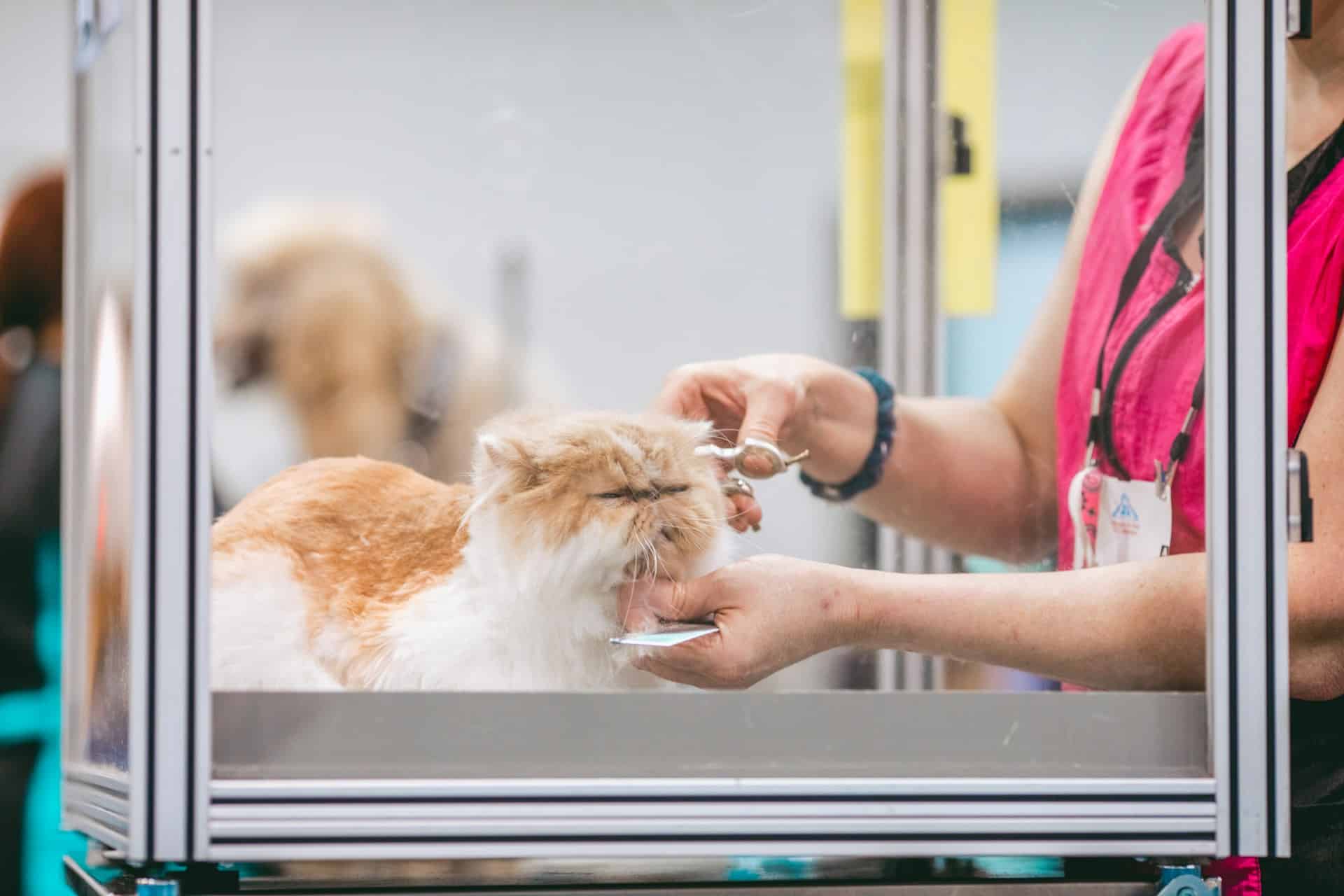What are the best practices for monitoring your pet’s health through regular check-ups?

As pet parents, your dedication to ensuring the well-being of your furry friends is truly admirable. Just like their human counterparts, pets also require regular medical check-ups to assure they are in peak health. Such practices help identify any potential health issues before they escalate into serious problems. In this article, we will delve deep into the best practices for monitoring your pet’s health through regular check-ups. Each section will unravel a new aspect of pet health management. Through a comprehensive overview, you will be equipped with crucial insights to maintain your pet’s health effectively.
Understanding the Importance of Regular Check-Ups
Irrespective of whether your pet seems perfectly healthy, regular check-ups are crucial. These visits to the veterinary clinic offer an opportunity to assess the overall health status of your pet and detect early symptoms of any potential diseases. Regular check-ups can in fact, be life-saving for your pets.
Dans le meme genre : How to prepare for the adoption of a rescue greyhound?
For instance, during a routine check-up, the vet may detect heart murmurs in a seemingly healthy dog. Similarly, a seemingly fit cat might have early signs of kidney disease which can be identified during a routine blood test. These issues, if detected early, can be managed effectively, thereby extending your pet’s lifespan and enhancing their quality of life. Hence, regular check-ups form the cornerstone of preventive healthcare for pets.
Knowing the Frequency of Check-Ups
The frequency of your pet’s check-ups primarily depends upon their age, breed, and health status. However, as a rule of thumb, adult pets should have a check-up at least once a year, while puppies, kittens, seniors, and pets with chronic health conditions may require more frequent visits.
Dans le meme genre : How to safely use heating pads for pets during cold weather?
Annual check-ups usually involve a comprehensive physical examination, dental check-up, necessary vaccinations, and screening for parasites. Having these check-ups done annually helps in early detection of health issues. For pets with chronic conditions like diabetes or heart disease, more frequent visits might be necessary to monitor their health status closely and adjust treatment plans as necessary.
Preparing for the Vet Visit
A vet visit can be stressful for both you and your pet. However, adequate preparation can help ease this stress. Before the check-up, make a list of questions or concerns you have. These could range from changes in your pet’s behavior to diet queries.
Pack a small bag with your pet’s necessities like a leash, treats, and any medication your pet is currently on. Remember to bring your pet’s medical history if you are visiting a new vet. This information would be invaluable in understanding any pre-existing conditions and designing an appropriate treatment plan.
Physical Examination: What to Expect
During the physical examination, the vet will examine your pet from head to tail. They will check the pet’s body weight, temperature, heart rate, and respiratory rate. The vet will also examine the pet’s eyes, ears, mouth, teeth, and gums for any abnormalities.
They might palpate the pet’s abdomen to check for any discomfort or unusual lumps. The vet will also check the animal’s fur and skin for parasites, wounds, or signs of allergies. This thorough examination helps in gauging the overall health of your pet and pinpointing any areas of concern.
Additional Tests and Procedures
Beyond the physical examination, the vet may recommend additional tests and procedures, especially for older pets, or if they suspect any underlying health issues. These tests might include blood tests, fecal tests, urinalysis, and imaging tests like X-rays or ultrasound.
Blood tests can help identify conditions such as anemia, infections, kidney and liver diseases, diabetes, and more. Fecal tests are performed to check for internal parasites. Urinalysis is done to assess the health of the urinary system and detect conditions like urinary tract infections and diabetes. Imaging tests help visualize the internal body parts and detect issues like tumors, fractures, or blockages.
Remember, regular check-ups are not only about detecting diseases. They are about building a strong relationship with your vet, understanding your pet’s health needs, and creating a health plan that ensures your pet leads a long, happy life. Regular vet visits are an investment in your pet’s health, and the peace of mind they provide is truly priceless.
The Role of Pet Insurance in Regular Check-Ups
Incurring medical expenses for your pet’s regular check-ups is as important as it is for your own health. However, the costs for frequent vet visits can add up, especially if your pet requires additional tests or procedures. This is where pet insurance comes into play.
Pet insurance is a type of health coverage for animals that reimburses the owner for certain medical expenses. This protects pet owners from high veterinary bills in case their pet gets injured or falls ill. Depending on the plan, it may also cover preventive care, such as vaccinations, screenings, and regular check-ups.
Just as it is significant with humans, having insurance for your pet can save you from financial stress. It’s also important to remember that pet insurance companies like Forbes Advisor offer different coverage options and it’s up to you to compare plans and choose the one that suits your pet’s needs and your budget best.
Getting pet insurance allows you to focus on the health of your pet rather than worry about the financial aspect. With your pet insured, you can ensure that your pet gets regular wellness exams without straining your finances. The peace of mind that comes with knowing your pet’s health is covered, is just as important as the care your pet receives.
The Importance of Body Condition and Age in Regular Check-Ups
The body condition and age of your pet play a critical role in determining the frequency and type of check-ups they require. For instance, senior pets generally require more frequent check-ups than their younger counterparts. This is due to the fact that they are more prone to age-related health issues such as arthritis, kidney disease, and diabetes.
During the regular vet visits, the vet will assess your pet’s body condition. They will look for any signs of obesity or malnourishment and provide dietary advice to maintain a healthy weight. In addition, your veterinarian will also check for any signs of muscle wasting or changes in body composition that could indicate a health problem.
For puppies and kittens, regular check-ups are crucial as they need to complete their vaccination series and be examined for common congenital and developmental issues. Regular check-ups also help to establish a baseline of what is normal for your puppy or kitten, making it easier to spot any changes in their health as they grow.
Through regular check-ups, pet owners can work with their vet to keep their pets in their optimal body condition, tailored to their age and breed. Remember, a healthy pet is a happy pet.
Conclusion
Regular check-ups are an integral part of maintaining your pet’s health. From understanding the importance of regular check-ups with your vet to knowing the frequency of these visits, and preparing for them, pet owners play a critical role in ensuring their pets lead a healthy, happy life.
It’s also important to understand the value of pet insurance, and how it can help offset the cost of these visits. Regular vet visits not only give your pet the best chance of early detection for a variety of health conditions but also provide an opportunity to track your pet’s growth, and development, especially crucial for puppies and kittens.
Just like humans, pets’ medical needs change as they grow older, making regular vet visits essential to adjust their health and wellness plan. A pet’s age and body condition are essential factors that your veterinarian will consider during check-ups.
In conclusion, monitoring your pet’s health through regular check-ups is a proactive approach to pet health care. By following these best practices, you are sure to contribute positively to your pet’s quality of life and longevity. Here’s to many more happy and healthy years with your furry companions!
